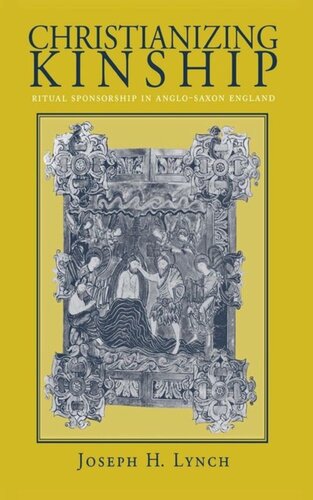

Most ebook files are in PDF format, so you can easily read them using various software such as Foxit Reader or directly on the Google Chrome browser.
Some ebook files are released by publishers in other formats such as .awz, .mobi, .epub, .fb2, etc. You may need to install specific software to read these formats on mobile/PC, such as Calibre.
Please read the tutorial at this link: https://ebookbell.com/faq
We offer FREE conversion to the popular formats you request; however, this may take some time. Therefore, right after payment, please email us, and we will try to provide the service as quickly as possible.
For some exceptional file formats or broken links (if any), please refrain from opening any disputes. Instead, email us first, and we will try to assist within a maximum of 6 hours.
EbookBell Team

4.4
92 reviewsWhen Christianity spread from its Mediterranean base into the Germanic and Celtic north, it initiated profound changes, particularly in kinship relations and sexual mores. Joseph H. Lynch traces the introduction and assimilation of the concept of spiritual kinship into Anglo-Saxon England. Covering the years 597 to 1066, he shows how this notion unsettled and in time altered the structures of the society.In early Germanic societies, kinship was a major organizing principle. Spiritual kinship of various kinds began to take hold among the Anglo-Saxons with the arrival of Christian missionaries from Rome in the seventh century. Lynch discusses in detail sponsorship at baptism, confirmation, and other rituals in which an individual other than a biological parent presented someone, often an infant, for initiation into Christianity. After the ceremony, the sponsor was regarded as the child's spiritual parent or godparent, whose role complemented that of the natural mother and father, with whom the sponsor had become a "coparent." He describes the difficulties posed by the incest taboo, which included a ban on marriage between spiritual kin. Lynch's work reveals how Anglo-Saxons, though never accepting the sexual taboos that were so prominent in the Frankish, Roman, and Byzantine churches, did create new forms of spiritual kinship. Unusual in its focus and scope, this book illuminates an integral element in the religious, social, and diplomatic life of Anglo-Saxon England. It also contributes to our understanding of the ways in which Christianization reshaped societal relations and moral attitudes.